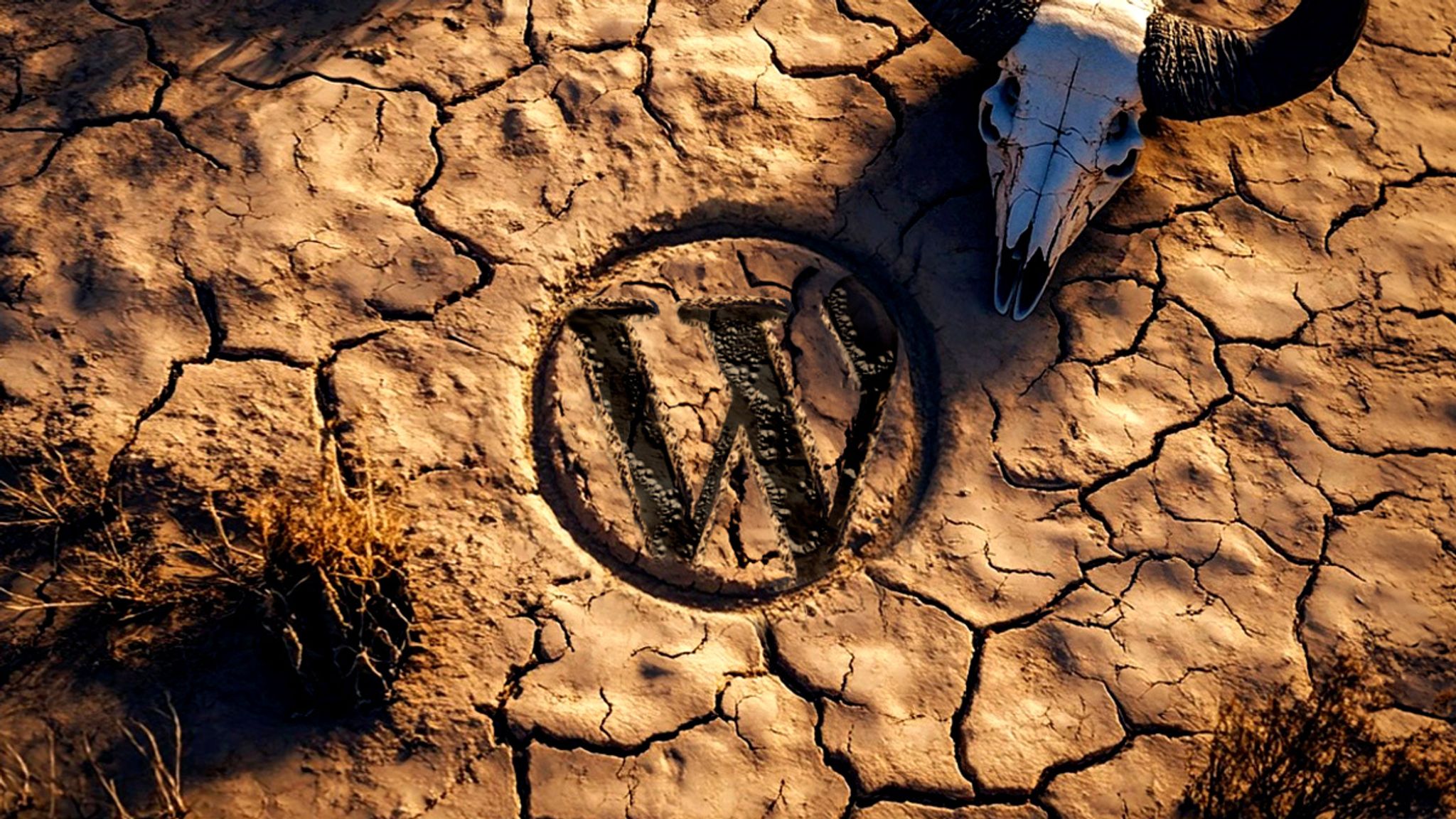WP Engine wins an injunction against Automattic. Is the WordPress 'scorched earth' campaign over?

Speculation about rapid legal action and a potential “fork” in the road has been eating the WordPress community for weeks. With this latest ruling, Automattic must back down its WP blockade, signaling a victory for WP Engine. Are we finally leaving "The Wild West?"
If you haven't heard, there was some legal news yesterday. Big news.
I’m not talking about the failed bid by satirical media site The Onion to buy Alex Jones’ far-right empire, including the defrocked Infowars website. Yesterday, a bankruptcy judge squashed the deal, ruling that the auction process was unfair.
No, I’m speaking of the other statutory quagmire weighing down the CMS world: the ongoing drama betwixt Automattic, the parent company of WordPress.com, and WP Engine – a third-party WordPress hosting platform.
Conjunction injunction, will WordPress function… for WP Engine?
Despite the scorched earth ruckus that’s been playing out, it will – at least based on Tuesday’s ruling. According to The Verge (which has done yeoman’s work covering this blusterous saga), a California district judge ordered Automattic to cease blocking WP Engine’s access to WordPress.org.
This includes removing the “WP Engine Tracker” that Automattic deployed, listing the number of sites that have left the hosting platform since the start of the dispute – which has fallen precipitously since September 21st – and tearing down the now infamous checkbox on the WordPress login that asks users to verify they’re not affiliated with WP Engine.
![]()
The WordPress WP Engine Tracker, as of December 11, 2024. Image: CMS Critic
Further, Automattic and its CEO Matt Mullenweg will have to relinquish their control of WP Engine’s Advanced Custom Fields (ACF) plugin, a popular WordPress resource that allows developers to create custom content fields for websites. In many ways, this was the hot potato in the proverbial oven, as many WP Engine customers were furious about the uncertainty surrounding its status.
Just to recap the backstory
After the initial action from Automattic, WP Engine filed a lawsuit accusing Automattic and Mullenweg of doing “irreparable harm” to its business, asking the court to intercede and restore WP Engine’s access to WordPress.org.
That court filing led to a contentious and very public campaign against WP Engine, in which Mullenweg called out WP Engine for misuse of the WordPress trademark. Perhaps in a more scathing rebuke, he also suggested the company had not been good stewards of the WordPress open source community, failing to sufficiently contribute to the platform’s ongoing innovation.
For the record, I tried reaching out to multiple sources since the beginning of the drama. This includes trusted open source community members and people on the inside from both ends of the spectrum. Unfortunately, given the legal sensitivities, no one was willing to comment at the time. Now that a ruling has materialized – albeit preliminary – there might be more transparent reflection from all parties. We’ll see.
Has this entire episode shaken the confidence of WordPress developers and practitioners? No doubt about it. Just read the tirade of social media comments that criticized both parties. Additionally, there’s been mounting negativity from contributors who have been vocal about their perception of the situation – a signal that things could be shifting in the future as developers assess the aftermath of this episode.
The dispute has also exposed a fragile vulnerability that perhaps rivals zero-day open source security exploits, demonstrating how the human factor (vis-à-vis the politics of ego and the pursuit of profit) might present unforeseen risks to WordPress agencies, businesses, and the ocean of community developers.
So what happens next?
Historians might be grappling with this chapter of web legacy for years to come. A lot depends on the fallout. There has been direct and collateral damage, to be sure – and given the visible personalities involved, we can probably expect further action. Does that mean more bellicose rhetoric? We’ll have to wait and see.
From a more existential framework, I would contend that WordPress isn’t projecting the same level of gravitas it once did. To be clear, I spent a season of my career building, managing, and migrating to and from this CMS. I know it well. Maybe too well. Heck, the previous version of this blog was powered by WordPress and hosted on WP Engine and I rarely had any issues. It was stable and reliable. Sure, I had to facilitate updates and manage our custom-built plugins. But having that level of control was part of the fun, part of the magic that is website design and development.
Maybe the operative question is: will WordPress continue to be a place where fresh minds and ambitious young developers flock to? Today, it still powers the largest share of websites on the open web, but is it in danger of becoming less relevant? Is a situation like this serving as a lynchpin for change – or a stark reminder that it is no longer the up-and-coming disruptor that it once was?
I believe in open source. We all use it up and down the stack, from Linux to Docker. It is fundamental to how we code and create. On the CMS level, I’ve vocally advocated for the analyst community to give open source platforms the fair shake they deserve in the scope of their grids. I’ve also written about the efforts of organizations like the Open Web Alliance and countries like Switzerland that are embracing open source in meaningful ways.
At the same time, users and practitioners ought to have material opportunities for generating equitable revenue by using open source software as part of their business strategy. As these platforms aired their dirty laundry on a very public stage, they've been influencing the decision-making for new and existing developers and businesses, perhaps deepening the rift and raising questions about the solvency of building in this ecosystem. Will that manifest in slowing growth? Again, the historians will love unpacking this.
If you visit Automattic’s website, the first thing you’ll read is a very simple mission statement:
“We are passionate about making the web a better place.”
If that’s true, then maybe tearing down the oligarchical power structures is the first step. And that’s not directed towards one side of the field. There’s plenty that can be done to reinforce better standards, greater transparency, and generally “good karma” from both Automattic and WP Engine. Both parties have beneficial attributes, and both had solvent points to make in this dispute.
Regardless of the outcome, we can agree that leaving builders and businesses in limbo is the least constructive way to maintain trust. Hopefully, we can leave the scorched earth behind – and focus on green fields.
Looking for guidance on WordPress or WP Engine? Talk to us.
Upcoming Events

CMS Kickoff 2025
January 14-15, 2025 – Tampa Bay Area, Florida
Meet industry leaders at our third annual CMS Kickoff – the industry's premier global CMS event. Similar to a traditional kickoff, we reflect on recent trends and share stories from the frontlines. Additionally, we will delve into the current happenings and shed light on the future. Prepare for an unparalleled in-person CMS conference experience that will equip you to move things forward. This is an exclusive event – space is limited, so secure your tickets today.

CMS Summit 25
May 13-14, 2025 – Frankfurt, Germany
Don't miss the first European edition of our prestigious international conference dedicated to the global content management community! CMS Summit 25 will bring together top-notch speakers, our renowned learning format, and engaging social events. Hear from leading practitioners like Deutsche Bahn, Dr. Oetker, and more – and join customers, agencies, and CMS vendors as we discuss current trends and what's ahead for the content and digital experience fields. Connect and network at the only vendor-neutral, in-person conference focused on CMS. Space is limited for this exclusive event, so book your seats today.
